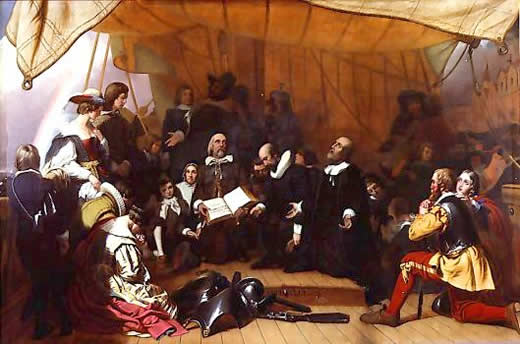Just in time for Thanksgiving, researchers from the University of Massachusetts Boston have unearthed evidence of the original Plymouth Colony built in 1620, including remains of a calf they have nicknamed Constance the Calf, Tech Times reports.
The dig was part of the Andrew Fiske Memorial Center for Archeological Research, led by the center’s associate director, David Landon. The team was only five weeks into the project, excavating at the original settlement site on Burial Hill, when they made their discovery. This now puts them many leaps ahead of Landon’s goal of finding proof in time for the colony’s 400th year founding anniversary in 2020.
The original settlement structures weren’t made of bricks, so the researchers couldn’t rely on foundations to locate the colony. Instead, they had to search for “post and ground construction,” or holes made by wooden poles in the dirt.
When they began coming cross 17th century artifacts such as musket balls, pottery, tin, trade balls and so on, the researchers grew optimistic that they would find something solid soon. At the very least, the items they were uncovering meant they were within the original walls. When they found Constance, their theories were confirmed.
Landon said,
Oftentimes, success in the colony depended on herds of cattle. It became a centerpiece of the economy. So the calf does connect us to that story.
Kathryn Ness, collections curator for Plimoth Plantation, called the discovery exciting and huge, with the ability to potentially change how early colonization of New England by the arriving Europeans is understood. What the team finds will also help Plimoth Plantation make its exhibits more accurate and more detailed.
The researchers are set to return to the site next summer. Now, they are cleaning and labeling the items they have found. They are also trying to find out how Constance the Calf died, and if she was buried whole or was actually killed for meat.
























